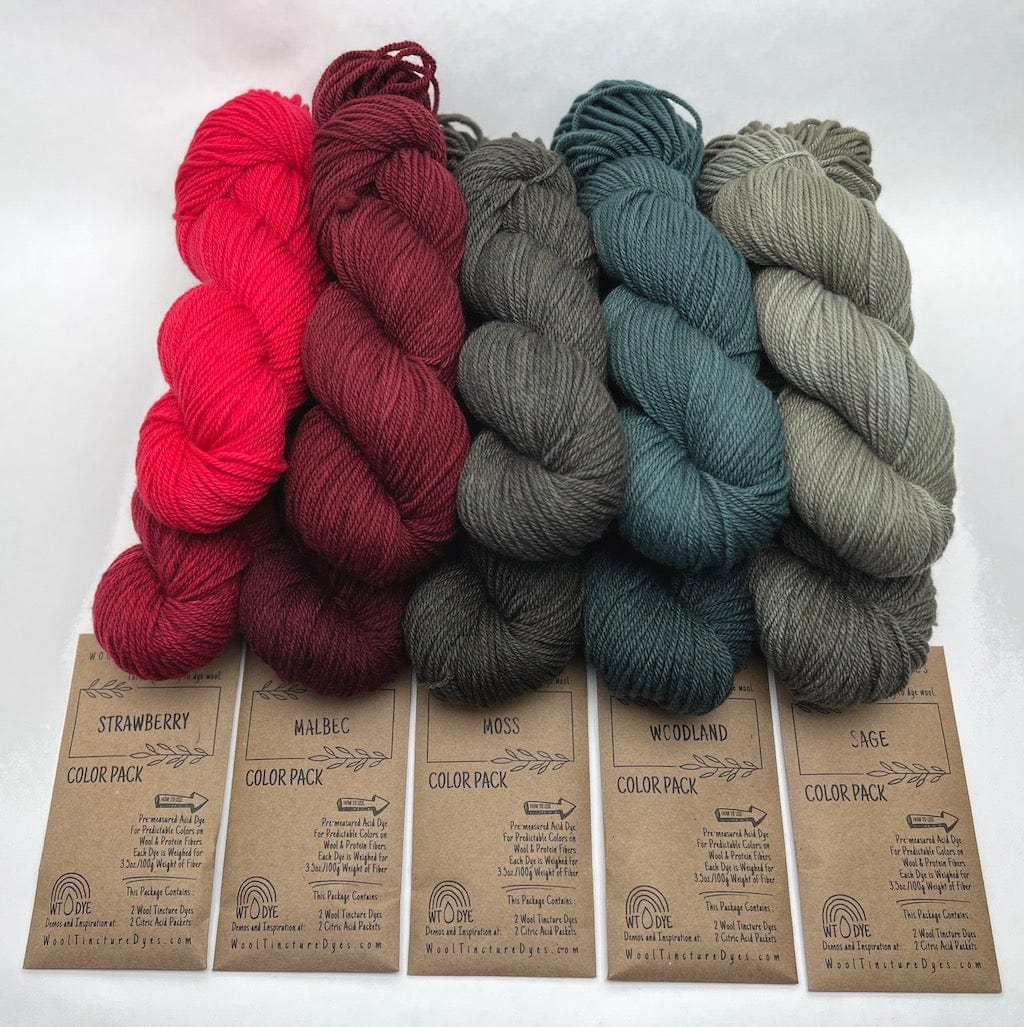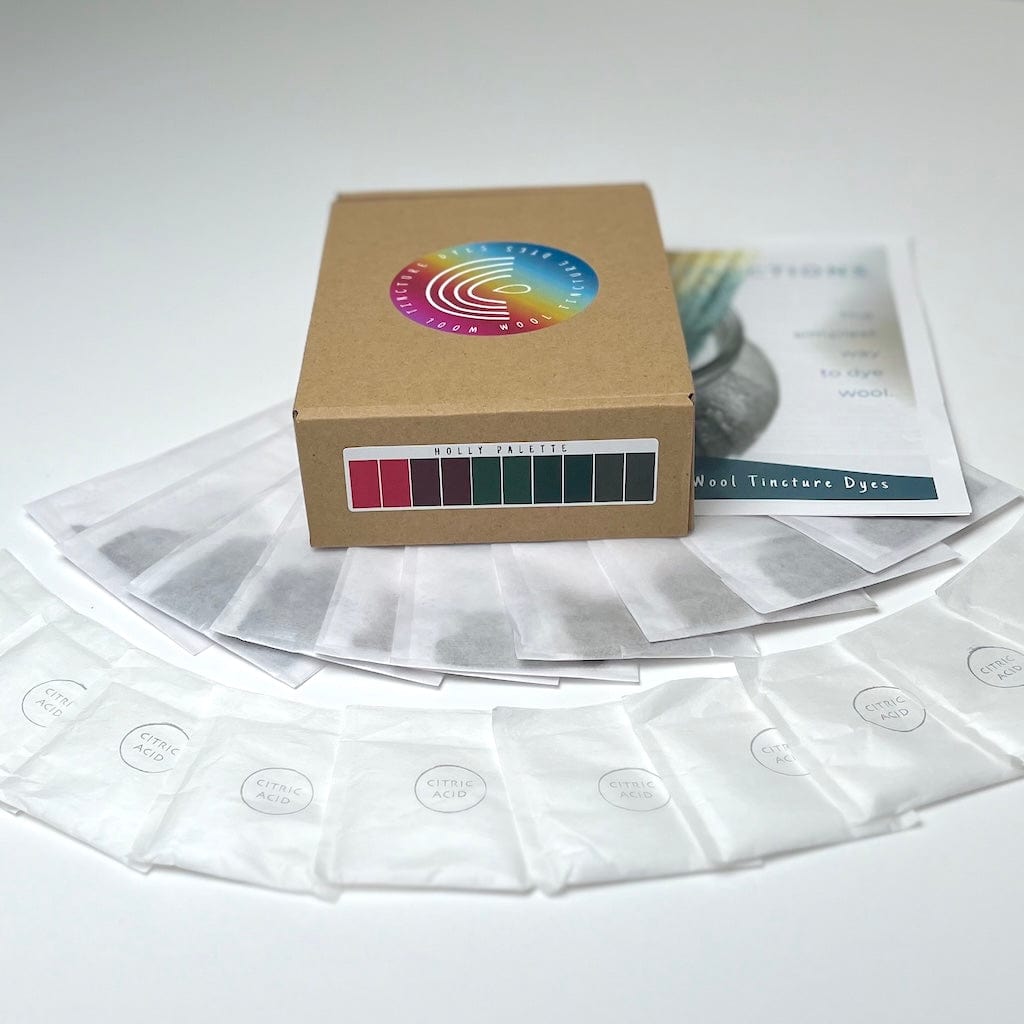

Holly Dye Palette
$ 58.00
Fast & Free Shipping on all US Orders.
Custom dye your next project with our Holly Palette including 5 Wool Tincture Dye (WTDye) Color Packs. That's enough to dye over two pounds of yarn! Each color is shown here on a white base (top row) and a gray base (bottom row). From left to right is Strawberry, Malbec, Moss, Woodland and Sage.
What are Wool Tincture Dyes? :
- Pre-measured Acid Dye in a Tea Bag!
- Over-dye your old stash with new color.
- Dye solids and resists; the sky is the limit.
- Dye locks, roving, yarn, and fabric without a big mess.
- Get fast and simple professional color in minutes.
The Holly Dye Palette Contains
- 10 Wool Tincture Dyes
- 10 Citric Acid Packets
- There are 2 Dye Tea Bags each of the following (shown left to right):
- Strawberry
- Malbec
- Moss
- Woodland
- Sage
This Palette Will Dye up to :
- 2.2 lbs. (1.0 kg)
- Wool, Alpaca, Mohair, Silk, Nylon (Any Protein Fiber)
Acid dyes are designed for protein fibers only and will not adhere to cellulose fibers such as cotton, linen, or hemp.
Basic Instructions
1. Heat a kettle of water.
2. Drop one tea bag dye in jar, pour over hot water and stir.
3. Submerge 3.5oz/100g of fiber.
4. Gently stir in one Citric Acid packet and steep for 10-15 min.
5. Drain, rinse and dry!
It's really that simple.
Complete Wool Tincture Instructions (pdf)
Frequently Asked Questions
-
We love hearing about your projects! We understand that sometimes you might just need a little advice about which color to choose or how many Color Packs you’ll need. All questions and comments are welcome.
Here are two ways you can find what you're looking for.
- Find Community Support : Meet new friends, watch video demos and share your own projects in the Wool Tincture Dyer's Group at the School of Wool.
- Contact Us : Feel free to reach out to us by phone or email if you like. We'll do our best to respond within 24 hours, during business hours.
-
Wool Tincture Dyes are professional-grade supermilling acid dyes. Acid Dyes get their name from the mildly acidic pH required for striking. A Dye "strikes" when its color bonds to a fiber.
-
Acid Dyes strike to protein fibers like wool, silk, alpaca, and mohair as well as nylon (a synthetic protein).
They will not adhere to cellulose fibers such as cotton, linen, or hemp.
-
We use non-toxic dyes in combination with natural citric acid. They are pre-measured for minimal exhaust, so the wastewater is harmless, mildly acidic water which is safe to drain over soil, sewer, or septic.
-
Absolutely! The amount of dye in each tea bag is measured precisely to give predictable color on 100 grams (3.5 oz) of clean fiber. We've found equally consistent results whether dyeing 1 or 2 skeins (100g ea) at a time in a one gallon dye jar or dyeing an entire sweater quantity in a larger pot.
We find using the dye jar to be the simplest method.
Watch a sweater overdye demo over on the School of Wool.
-
Yes, be creative! You can dip dye, over-dye, create ombres, gradients and multi-colored effects. When you work with resist methods or adjust the weight of fiber used with each tea bag, you will alter the strength or saturation of color. These methods might also result in excess dye in the exhaust. We suggest not using more than three tea bags per 3.5oz/100g of fiber to avoid excessive dye in the exhaust.



